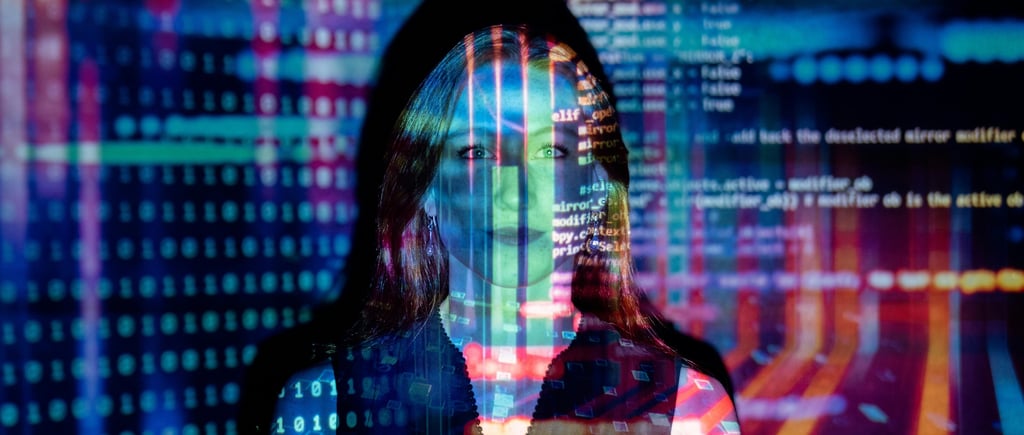The Future of Work: How AI Will Transform, Not Replace, the Job Market
This article explores the transformative impact of AI on the job market, arguing that while AI will automate certain tasks, it will also create new job opportunities and shift human roles towards more complex, creative, and strategic functions. Drawing parallels with past technological disruptions like the Industrial Revolution and the rise of the internet, the article highlights how AI is poised to enhance productivity and focus human efforts on areas where we excel, such as ethics, strategy, and creative collaboration. It also emphasizes the importance of upskilling and lifelong learning to navigate this evolving landscape, ensuring that AI serves to augment human potential rather than replace it.ription.
9/1/20244 min read


As artificial intelligence (AI) continues to advance, there’s growing concern that it will lead to widespread job losses and economic upheaval. However, history suggests a more nuanced outcome. While AI will undoubtedly disrupt certain industries, it will also create new opportunities, shift the nature of work, and ultimately enhance human productivity if managed correctly. In this article, we'll explore how AI is likely to transform the job market, drawing parallels to past technological disruptions and examining the new roles humans will take on in an AI-driven world.
1. AI as a Job Creator, Not Just a Job Destroyer
The fear that AI will eliminate jobs is a common narrative, but it overlooks the potential for AI to create new roles and industries. According to a report by the World Economic Forum, AI and automation could displace 85 million jobs by 2025, but they are also expected to create 97 million new jobs during the same period. These new positions will likely focus on tasks that require human creativity, emotional intelligence, and complex problem-solving—areas where AI, despite its capabilities, still falls short.
For instance, as AI increasingly handles routine tasks, humans will be needed to manage and refine the output of these systems. This includes roles in AI ethics, where workers ensure that AI technologies are used responsibly, and in content curation, where humans oversee the quality and relevance of AI-generated content. These roles highlight the symbiotic relationship between AI and human workers, where AI enhances efficiency and humans provide the oversight and strategic thinking that machines cannot.
2. Learning from History: Technological Disruptions and Job Creation
AI is not the first technological advancement to trigger fears of mass unemployment. Historical examples show that while technology can disrupt existing job markets, it also tends to create new opportunities and industries.
The Industrial Revolution: In the 19th century, the advent of machines in manufacturing led to fears of widespread job loss. While it’s true that many manual labor jobs were replaced by machines, the Industrial Revolution also created millions of new jobs in manufacturing, transportation, and engineering. It also led to the development of new industries, such as automotive and textile production, which became major employment sectors.
The Internet: When the Internet became widely available, there were concerns that it would eliminate jobs in traditional sectors like retail and publishing. However, the internet gave rise to entirely new fields, such as web development, digital marketing, and e-commerce. These sectors have since become significant sources of employment, demonstrating how technological innovation can create as many jobs as it disrupts.
Automation: In recent decades, automation has significantly reduced the need for manual labor in manufacturing. However, it has also increased productivity, reduced costs, and created demand for higher-skilled positions in areas like machine maintenance, programming, and logistics. Automation has not only maintained but, in some cases, expanded employment in industries that have embraced these technologies.
These historical parallels suggest that while AI will disrupt certain job markets, it will also create new opportunities. The key lies in adaptability and the willingness to learn new skills.
3. Shifting Human Focus: Enhancing Human Roles in an AI-Driven World
One of the most significant ways AI will transform the job market is by shifting the focus of human work from routine tasks to more complex, strategic roles. AI can efficiently handle tasks that are repetitive or data-intensive, freeing up human workers to engage in work that requires higher-order thinking.
For example, instead of being involved in the initial creation of content, humans will increasingly take on roles that involve refining, curating, and ensuring the ethical use of AI-generated content. This shift in focus will create opportunities in areas such as:
Strategic Oversight: AI can analyze vast amounts of data and identify patterns, but human judgment is essential in interpreting these insights and making strategic decisions. Jobs that focus on AI strategy, data interpretation, and decision-making will become increasingly important.
Creative Collaboration: While AI can assist in creative processes, the human touch remains irreplaceable in areas like design, storytelling, and innovation. Creative professionals will work alongside AI, using it as a tool to enhance their work rather than replace it.
Ethical Stewardship: As AI becomes more integrated into decision-making processes, jobs focused on AI ethics and human-centered design will be critical. These roles will ensure that AI systems are developed and used in ways that align with human values and societal goals.
4. Increasing Productivity and Focusing on Human Strengths
AI has the potential to significantly boost productivity by automating routine tasks, thereby allowing humans to focus on work that leverages their unique strengths. For instance, in the healthcare industry, AI can manage administrative tasks, allowing doctors to spend more time on patient care, diagnosis, and treatment planning—areas where human intuition and empathy are crucial.
This shift not only enhances productivity but also improves job satisfaction by enabling workers to engage in more meaningful and intellectually stimulating tasks. As AI takes over the more mundane aspects of work, humans can concentrate on activities that require creativity, critical thinking, and emotional intelligence—qualities that remain beyond the reach of AI.
5. Preparing for the Future: The Importance of Upskilling
To fully harness the benefits of AI and mitigate potential downsides, it is crucial for workers to adapt through upskilling and continuous learning. As the job market evolves, new skills will be required to thrive in an AI-driven economy.
AI Literacy: Understanding the basics of AI, machine learning, and data analysis will become essential for many roles across various industries.
Creative and Strategic Thinking: As AI handles more routine tasks, the ability to think creatively and strategically will become even more valuable. Workers will need to focus on skills that AI cannot easily replicate.
Ethics and Human-Centered Design: Jobs focusing on AI ethics and ensuring that technology serves humanity will be critical as AI becomes more integrated into our daily lives.
Educational institutions, businesses, and governments must work together to provide the training and resources needed for workers to acquire these new skills. Online learning platforms, corporate training programs, and government initiatives will play key roles in preparing the workforce for the future.
Conclusion
AI is set to transform the job market not by eliminating jobs, but by creating new opportunities and shifting the focus of human work to areas where we excel. By learning from past technological disruptions and embracing continuous learning, we can navigate this transformation successfully. The future of work will be defined not by AI replacing humans, but by how we integrate AI into our lives and use it to enhance human potential. In this new era, adaptability, creativity, and a commitment to lifelong learning will be the keys to thriving in an AI-driven world.
Question Everything
Exploring various topics without bias for a true view.
